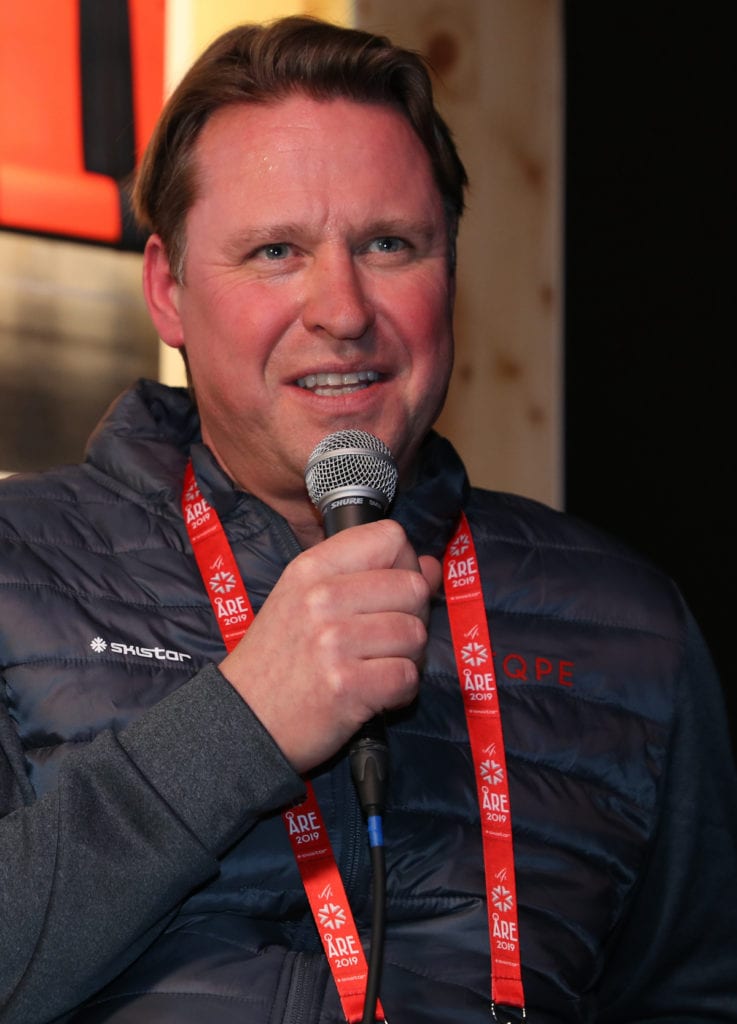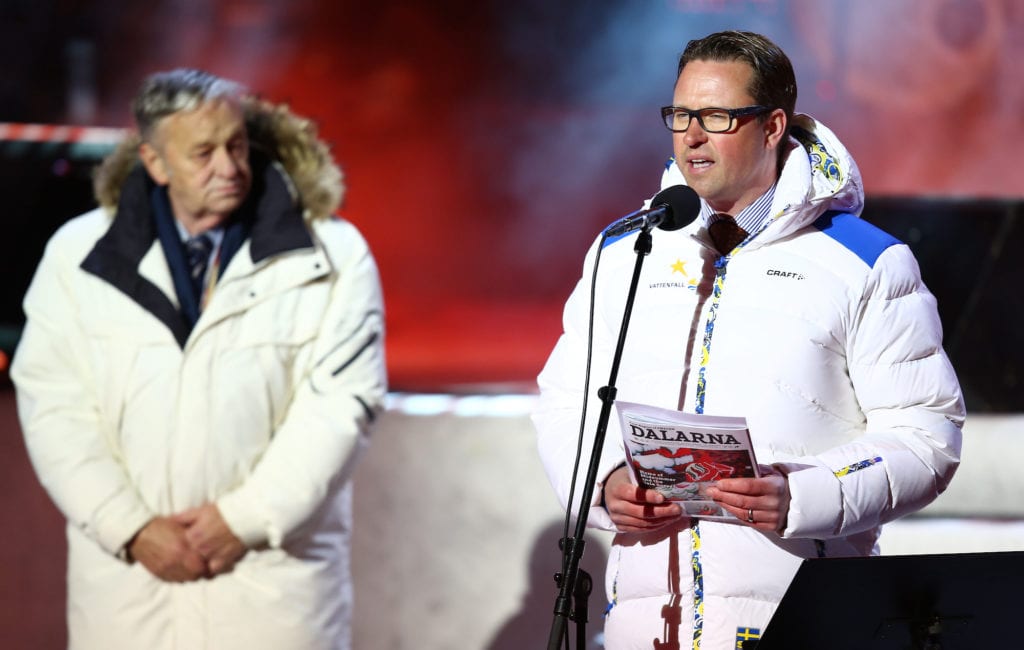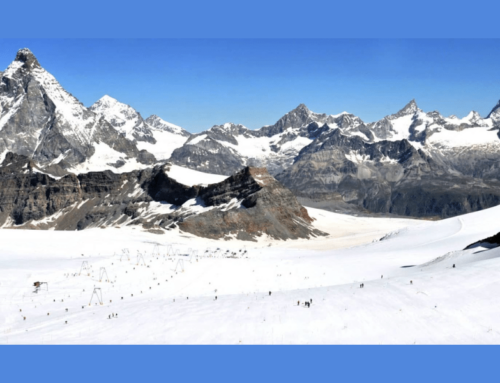Mats Årjes seeks to become second Swede to lead FIS
Editor’s note: This is the second in a series of articles featuring interviews with candidates for FIS president ahead of the June 4 election to replace Gian-Franco Kasper. In these articles, our goal is to provide an outlet for the candidates to state their platforms while we review the history and credentials of each. You can read our first article on Sarah Lewis here. Ski Racing Media has not endorsed a candidate at this time.
Mats Årjes, who is running to succeed Gian-Franco Kasper as FIS president, concedes he doesn’t have all of the answers. The future success of FIS, he says, will ultimately be achieved through input and contributions from the varied national ski associations.
Årjes, the recently reelected Swedish National Olympic Committee (NOC) president, FIS vice president and FIS Council member, declared his candidacy on March 23.
If elected, he intends to remain in his role as Swedish NOC president while simultaneously leading FIS.
“It’s not a matter of one person – you have to make sure you are creating a successful team and not only with the staff, but also representatives from all of the national ski associations, and also to get closer to suppliers and other stakeholders involved in our organization,” Årjes tells Ski Racing Media.
“It’s a matter of collaboration and you have to make sure that you are able to navigate and create a successful team for our sport,” he adds.
Årjes says his most imminent priority would be ensuring the well-being of, not only, the competition circuits, but also, the entire ski industry, which seeks to recover from the damage caused by COVID-19.
“Whether we are talking about FIS, or suppliers or ski resorts, we have to make sure that we are the most attractive activity that we can be,” Årjes says. “We have to promote our athletes, events, resorts and so on.
“I believe that we can accomplish a great deal by getting closer to the ski resorts and suppliers as well.
“In Italy, Austria, and France the ski lifts have been closed, so of course we have to make sure our events and these outdoor snow activities are very attractive once again,” he says, referring to next season.

Årjes, 53, who served as president of the Swedish Ski Association from 2008 to 2018, says his goal is to identify where sustainable, industry-wide improvements can be made to achieve the sport’s global potential.
“FIS has a great heritage – the platform that has been built for many years is amazing and impressive, but with all kinds of organizations or businesses, it’s always possible to improve and make change in a positive manner,” Årjes says.
Årjes proposes the most extensive review and consultation in skiing’s history in order to identify where sustainable improvements can be made.
“By involving important people – the FIS staff and Council, all the national ski associations, the athletes, sponsors and media – and by making this review, I think we can improve a lot. We can become more successful, even better.
“It’s also important to attract the younger audience to make sure they are interested in and believe our activities, disciplines and events are super attractive,” he adds.
Multiple hats?
Årjes says he does not foresee any significant obstacles in holding the leading roles of both the International Ski Federation and the Swedish Olympic Committee. He says he has sought feedback from friends and colleagues about taking on these dual high-profile responsibilities.
“The big difference between the NOC of Sweden and FIS is that, as president of the NOC, we have a management team and of course you are responsible for running the board, but it’s not daily operations,” Årjes says.

“I have asked many people about this – if this is positive or negative and 100% of the people I asked are 100% positive, so I don’t think it’s a problem at all.”
Årjes also possesses private-business experience as the former chief executive officer of SkiStar, a Scandinavian proprietor of snow tourism.
“I believe that my background is very relevant because I have been very close to the sport for many years and also have been CEO of a very successful company related to the ski sport,” Årjes said.
“I’m proud that I have this experience from FIS, the [Swedish] Ski Federation, the [Swedish] Olympic Committee and also from my years as CEO of a company.”
As the former president of the Swedish Ski Association, Årjes led the effort to bring the alpine world championships to Åre in 2019, after a 65-year hiatus, in addition to the 2015 Nordic world championships to Falun.
His manifesto
Årjes’ manifesto focuses on four key areas: governance, stakeholder engagement, maximizing FIS assets, and the environment.
In terms of the environment, Årjes says identifying environmental solutions and developing best practice guidelines at national levels are necessary.
“We all have to be responsible for making things better for the future and next generations, but I think for FIS this can be a great opportunity to promote the right kind of mindset and help the situation,” Årjes says.

“FIS is the perfect umbrella to promote outdoor snow activities, so we have a huge opportunity here.”
Regarding governance, Årjes says implementing best practices, improving representation and gender equality, increasing transparency and strengthening athlete’s voices are priorities.
Key areas of stakeholder engagement include leveraging modern technologies and digital communications to maximize potential, improving event formats, and engaging ski and snowboard destinations to improve access to the sport.
Årjes says essential strategies to build FIS assets include identifying where additional investments are required, assessing coordination between FIS disciplines and undertaking a strategic commercial review.
Return to racing in North America
Årjes believes that in lieu of the unfortunate cancellation of World Cup events in the U.S. and Canada this past season due to COVID-19 travel issues, next winter will be critical in restoring momentum.
“I would say that it’s extremely important because we have to make sure that we have events taking place in the U.S. and Canada,” Årjes said.
“We have to be much more involved and I think there are many hosts and organizers in the U.S. and Canada that are struggling, so we have to make sure that these are onboard.
“Considering the fact that FIS is a global organization, we need to figure out ideas so that we stay global, and from that perspective it is very important to be in the U.S.”
The stage is set
The election for the successor to Gian-Franco Kasper, who is stepping down after 23 years, will be conducted during the virtual FIS Congress on June 4.
Årjes is one of four candidates who have thrown their hats in the ring for the FIS leadership position. His opponents include former FIS secretary general Sarah Lewis, HEAD chief executive officer Johan Eliasch, and Swiss Ski Federation president and downhill world champion Urs Lehmann.
“I’ve had many positive words and many people supporting me and making sure that I am running for this position,” Årjes said.
Should Årjes win the election, he will become the second Swedish president in the 97-year history of the FIS. Ivar Holmquist – considered one of the pioneers who introduced skiing to Sweden – led the organization from its inception in 1924 until 1934.
“I’m very privileged and honored to be nominated by my own country, my own ski federation, which is not the fact in all cases,” Årjes said. “It’s going to be interesting, the fourth of June.”





















